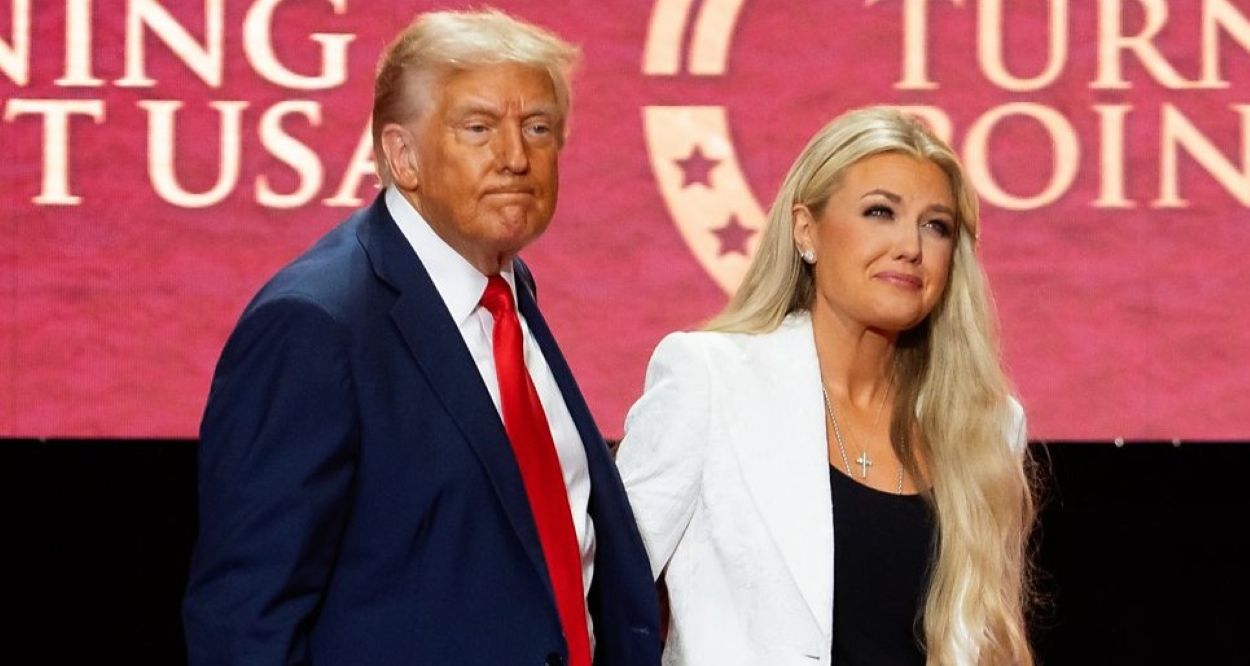President Donald Trump referred to slain activist Charlie Kirk as a “martyr for American freedom” during his memorial service held at State Farm Stadium in Glendale, Arizona. The event attracted tens of thousands of attendees. Trump attributed Kirk’s murder to the “radical left” and pledged to continue Kirk’s efforts.
The service mixed religious revival and political rally vibes. Mourners in red, white, and blue filled the 63,000-seat arena. Christian rock artists performed, with some swaying and crying. Kirk’s Turning Point USA organised the event, 11 days after his September 10 shooting.
Kirk’s wife, Erika, who now leads Turning Point, spoke movingly. She said Charlie was ready to die without regrets. “He did 100% of what he could every day,” she said. Erika forgave the accused killer, citing Jesus’ words on the cross. “Charlie wanted to save young men like him,” she added, as the crowd applauded.
President Trump's speech today at the Charlie Kirk memorial service in Arizona.
. pic.twitter.com/MEezpM910Z
— Paul Villarreal (AKA Vince Manfeld) (@AureliusStoic1) September 21, 2025Trump’s speech turned political. “The violence comes largely from the left,” he said, without proof. He disagreed with Kirk’s no-hate approach: “I hate my opponents.” Trump brought Erika onstage as “America the Beautiful” played. She said his mission will grow “a hundredfold.”
White House adviser Stephen Miller said Kirk awakened a “dragon” in conservatives. Director of National Intelligence Tulsi Gabbard linked the killing to historical political violence. Vice President JD Vance credited Kirk with Trump’s 2024 win by mobilising youth.
Read: Utah Seeks Death Penalty for Tyler Robinson in Charlie Kirk Killing
Kirk, 31, founded Turning Point USA in 2012. He rallied young conservatives and was a Trump ally. Supporters see him as a free speech champion. Critics cite his divisive rhetoric on race and immigrants. His death, by a single shot at Utah Valley University, sparked fears of more violence.
Kirk’s memorial highlights America’s divides. Trump’s blame game deepens partisan rifts. A Reuters/Ipsos poll shows 67% link harsh talk to violence. The event raises concerns about political killings.






